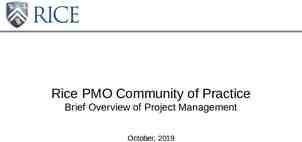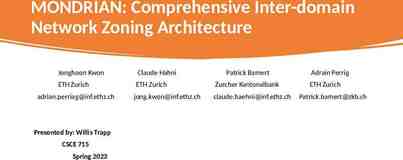Strengthening Community Supports to Prevent Elder Abuse
13 Slides424.48 KB

Strengthening Community Supports to Prevent Elder Abuse [ PRESENTER INFORMATION]

Introduction: Presenter / Organization PRESENTER BIO; ORGANIZATION MISSION OR GOAL(S); COMMUNITY PARTNERS, ETC.

Elder Abuse: What are you seeing? How often are you hearing people allege elder abuse? What scenarios are you hearing about most frequently?

Elder Abuse – Share 1 Thing Utilize the chat box to share 1 Thing you know about Elder Abuse or 1 Thing you want to learn about Elder Abuse

What is Elder Abuse? Elder abuse, the mistreatment or harming of an older person, is an injustice that we all need to prevent and address. Elder Abuse occurs in both community and institutional settings and takes many forms, including: Physical abuse Emotional/Psychological abuse Sexual abuse Neglect Financial abuse and/or exploitation Elder Abuse is believed to be widely under-detected and under-reported.

What Causes Elder Abuse? Elder Abuse can occur when strong social supports are not in place to keep us connected as we age. While anyone is potentially at risk of abuse, some factors can increase one’s risk of experiencing abuse: social isolation lack of access to support services and community resources physical, mental, or emotional needs in carrying out daily activities Elder Abuse can be prevented if we work together to create a stronger society that values and supports all of us as we age.

Types of Elder Abuse PHYSICAL PSYCHOLOGICAL FINANCIAL SEXUAL NEGLECT Multiple forms of abuse can occur at the same or different times.

Signs of Elder Abuse Emotional/ Behavioral Signs: Unusual changes in behavior or sleep Increased fear or anxiety Isolation from friends or family Withdrawal from normal activities

Signs of Elder Abuse Physical Signs: Dehydration or unusual weight loss Missing daily living aids Unexplained Unsanitary Unattended injuries, living medical bruises, cuts, conditions and needs or sores poor hygiene

Signs of Elder Abuse Financial Signs: Fraudulent signatures on financial documents Unpaid bills Unusual or sudden changes in spending patterns, will, or other financial documents

Reporting Abuse Report suspected abuse or neglect in the community setting: Adult Protective Services 1-XXX-XXX-XXXX Report suspected abuse or neglect in a long-term care facility: Long-Term Care Ombudsman 1-XXX-XXX-XXXX To connect to a local or state reporting number, contact the Eldercare Locator at eldercare.acl.gov or at 1-800-677-1116 M-F 9AM – 8PM ET. For emergencies, call 9-1-1.

5 Things EVERYONE Can Do to Prevent Elder Abuse Elder abuse is preventable – and everyone has a role to play. Listen to older people and caregivers to understand their challenges and provide support Educate one another about the signs of abuse Report suspected abuse or neglect as soon as possible Build a community that fosters social connections and supports Reach out to professional services for support where available

Thank You! Q&A Connect With Us [ organization name; phone number ; address; Hours of operation; social media handle(s); website]






